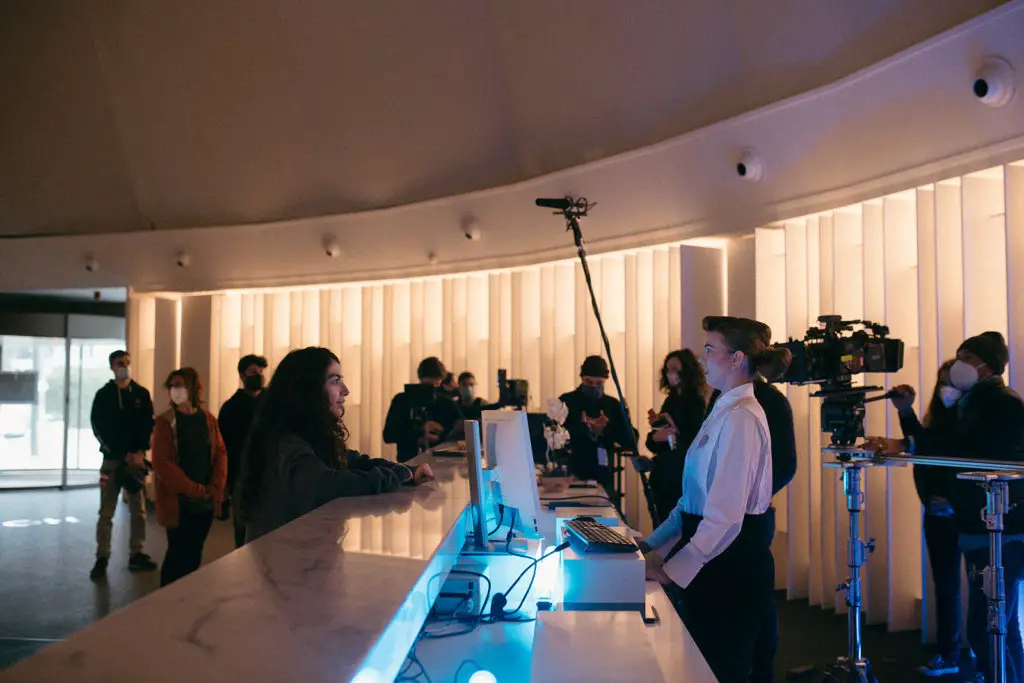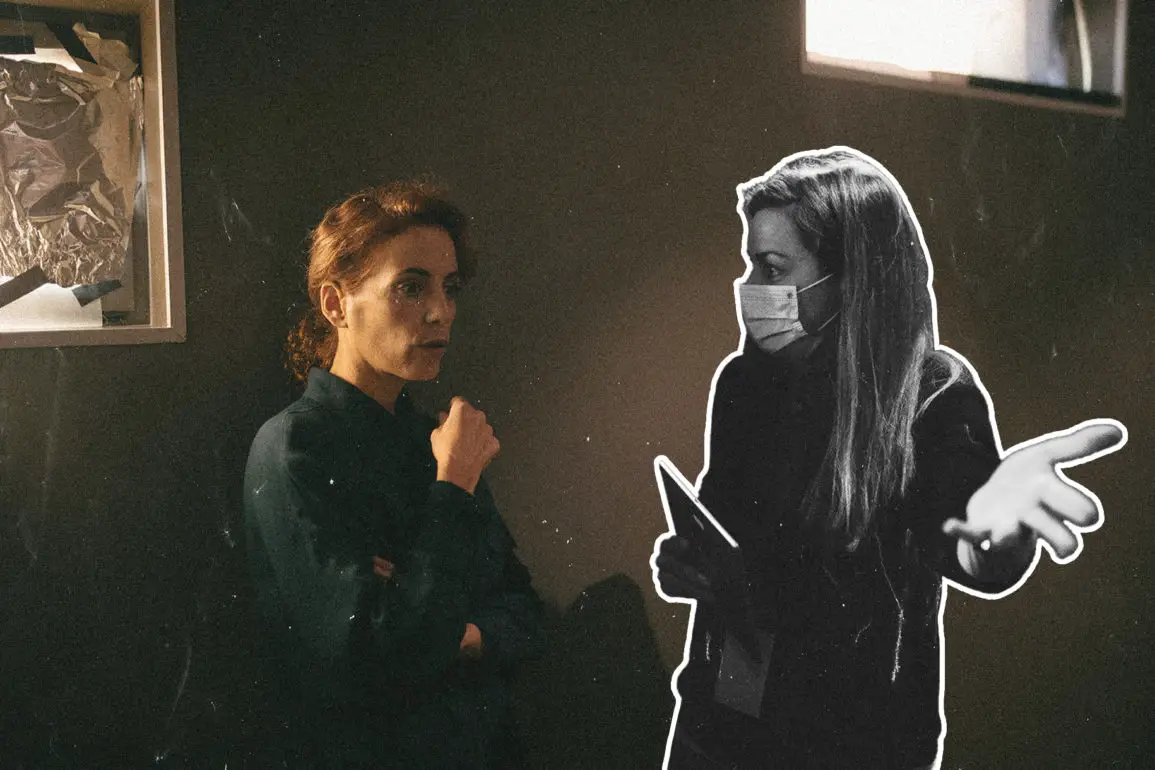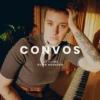How did you start your career as a filmmaker? What inspired you to work in the entertainment industry?
I was very young when I realized I wanted to work in film. As a child, I didn’t really know who did what on a film production. All I knew was that I wanted to be a storyteller, and I wanted to be that person that took all the creative pieces of the production puzzle and put them together. I learned that this was the director’s job, and from that day on, whenever someone asked me “what do you want to be when you grow up” my prompt answer was always: a film director!
Congratulations on your short film The Pill! Can you walk us through the process of preparing for your role as the director? What was your biggest takeaway from this experience?
Thank you very much. I think one of the more important exercises you can do as a director before you adventure into production, is a script breakdown. I sit down and write extensively about the story, the themes, the emotional core, the characters, the story structure, etc. I explore the story and the characters to find out what this film REALLY is about. I make sure I know every single detail of each scene, each dialogue, and each character. I know why they behave the way they do, and I know why they say the things they do. If after my script breakdown there are still things I couldn’t find an answer to, I make sure to note it down – these will be the things to debate with my actors and my crew members later on.
The production of The Pill is unique because the entire pre-production (including meetings, casting, rehearsals, and preparations) and post-production (including editing, music, and sound), was done remotely by individuals from across the globe who had never met in person. We scheduled meetings through our Facebook group and spent many hours on Zoom calls. Another interesting thing about our team is that it consisted of people with all levels of experience. We included anyone who wanted to participate. People were given tasks and responsibilities according to their level of experience. That means some people would be shadowing or assisting while others would lead and fully have responsibility. As you can imagine, there were plenty of challenges. The first one we encountered was the multiple time zones we were dealing with. How to find a time where someone from Los Angeles, Mumbai, and Barcelona can be on the same call? It takes scarifies from everyone and good planning. Another thing is, you are also working with people who come from different countries and cultures which means some of the film terminologies can be different, expectations to your tasks and responsibilities can be different, and work ethics. What we did (and I believe that worked) was to maintain high professionalism, and while every single person was working on a volunteer basis (included professionals and mentors) we still demanded and expected people to comply with deadlines and do their utmost.
My biggest takeaway from this experience is that it has proven to me that there are no limits to what you can accomplish when you set your mind to it and when you are really passionate about something. I pitched my script and the idea of making a film during lockdown to a group of people I hardly knew and who lived on the other side of the globe. I never expected us to do what we did. I am proud of everyone that was involved, and I know we have inspired other filmmakers to follow in our footsteps which makes me very happy.
How long did it take you to write and develop the story? What inspired you to make it?
It is a script of about 15 pages, and as far as I remember, I took a couple of months to write it. However, when I pitched my idea, I also let everyone know that we could set up a writers group and change/improve the script as much as they wanted to. So, we did just that. There were a few writers in our Facebook group, and we got together for weekly Zoom meetings where we debated the structure and the characters. We explored the world, and we actually came up with many more characters and scenes but ended up going back to the original version of the story with some improvements. I believe we did 1-2 months of meetings with this writers group. It was both fun and very effective to explore the script in a group.
I like to explore taboos and complex themes. In the past, I have made films about pedophilia, prisons, and sexual abuse. The reason why I like to do these types of stories is because I like to challenge my own open-mindedness. If I have a firm standpoint, I immediately want to explore why and where that comes from – and, if I would be able to change it! So, I decided to explore my own standpoint and opinion about euthanasia, and I did it through my film The Pill.
What I always hope to do with my films, is to create debate and to get people to speak up – especially when it comes to taboos. The only way of eliminating a taboo is to start talking about it. I know my film has had an impact on many people. Both friends, colleagues, and strangers have told me that the film deeply moved them and made them think. I know of one girl who ended up revealing her own suicidal thoughts to a group of girlfriends after they had watched the film. I think that is the best compliment you can give a director: that their films matter and have a real impact on their audience. To me at least it is.

What was the collaboration process like with your film crew considering that this project was organized remotely? How did you make it successfully work?
It’s always important to be organized when you do any type of large project, but when you do it remotely, I think it becomes even more important. Agree with the team from the beginning the channels of communication you will be using: Slack, Messenger, Whatsapp, Email, Trello etc. There are so many ways of communication and what you don’t want is for people to miss your messages because they are not familiar with Slack, or they never log in to Messenger, or whatever other reason there might be. Talk about expectations and how much time each person is willing to dedicate – this is especially important when working on a volunteer basis. Talk about what responsibility each person has and what type of credit they will get in the end.
On a more technical level, you want to make sure your post-production can flow easily. If the shooting is being done in one country and the editor sits in another, how are you going to share the material? Make sure people have the resources and knowledge needed for a remote shoot.
There’s a famous saying in Hollywood that directing is 90% casting. What was the dynamic like between you and your actors? How was the casting process like?
The casting process was done entirely remotely as we were in full lockdown. I posted a casting call, and I also reached out to actresses in Barcelona. The actresses who wanted to do the audition got sent the script sides, and then we asked them to record themselves doing the scene. I gave them the opportunity to film this with a friend or colleague as a dialogue, or to do it on their own with a monologue version I had prepared for them. They sent me back the videos and together with their showreels I made my decision.
Rehearsals with the actresses were also done remotely via Zoom meetings. They went surprisingly well. It was a little strange in the beginning, and I know they had to get used to the format, but eventually, they found a way to use it to their advantage. It also gave the actresses more flexibility and we could do meetings almost at any time we wanted. I made sure to do a lot of exercises with them that could be done in front of the computer, and we spent a lot of time talking backstories for the characters. I think as we were all very open to the challenge, we actually embraced the format and made it work.
Were there circumstances in which you had to make difficult artistic choices or alter scenes/storylines? If so, how did you compromise and make it work?
As I spoke about earlier, we had a writers group in the beginning. I was very open to suggestions and alterations but we actually stayed very true to the original story. We did, however, give one of the characters a little more presence, and in post-production, that character became even more important. It became clear to us that she had a very interesting arc, and the actress had given a lot of depth to the character so it felt natural to give her more importance. We were also aware of the duration of the film. We all really wanted to keep it under 15 minutes. In post-production, the producers pushed for cutting some of the dialogue out, and I think we found a very good middle way where everyone was happy and satisfied with the final edit. Here is where the script breakdown, which I talked about earlier, becomes important to you as a director. You know your story so well and you know WHY every single detail in a scene is there, so you can argue why something should or should not be changed. However, I also believe a director must be open to what the audience and his or her producers say. It’s all part of creating the best possible film.
How do you think the story or characters will change and make an impact in today’s society?
I don’t know if my little film will have an impact on society. However, I hope it will impact the people who do watch the film. I hope it will make them think and reflect on their own beliefs. I feel suicide is a very overlooked theme/taboo, and the film gives you the opportunity to talk about it. The film is also about the high expectations and pressure from society, and furthermore, it takes a look at how far we have taken capitalism. These are all important topics to reflect on as human beings.




